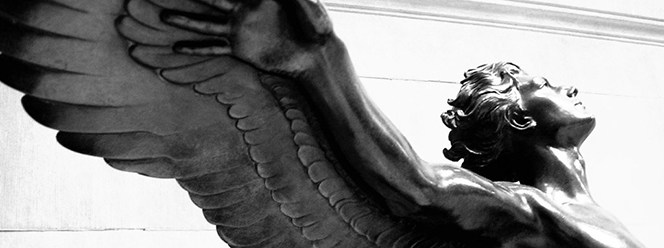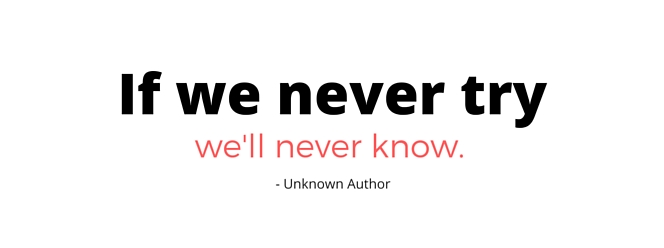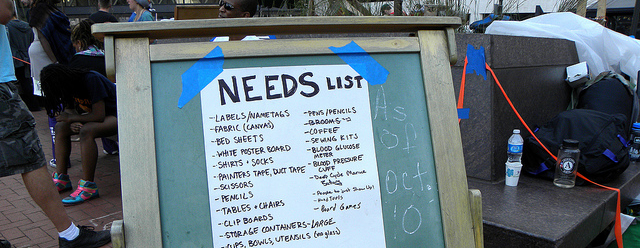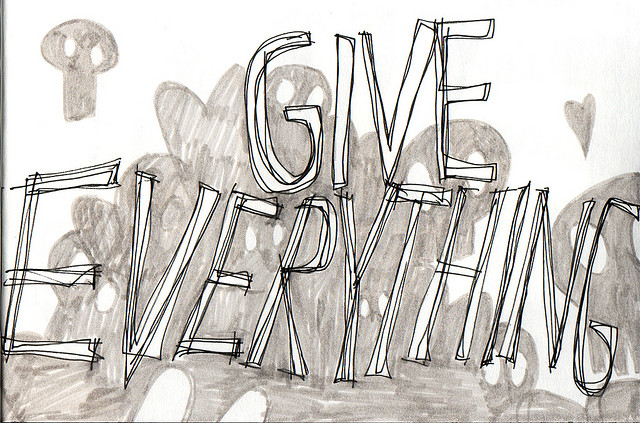
by Tara Joyce | Mar 31, 2017 | Featured, Self/Business Growth
Do you know the Greek myth of Icarus? Icarus is the son of Daedalus who dared to fly too near the sun on wings of feathers and wax. His father cautioned him that flying too near the Sun would cause the wax to melt. But Icarus became enthralled with his ability to fly and forgot his father’s warning. The feathers came loose and Icarus plunged to his death in the sea.
As I see it, this myth is a lesson about balance, about finding balance with your ego and with your gifts. It was Icarus’ choice not accept his gift as it was and to see it as enough. Instead, he chose to push it further, to a place where his gift was destroyed, and he destroyed himself in the process.
We all have, and are given, wings to fly on and it is our choice what we do with them. Do we not use them and never take flight? Do we accept them as they are and fly proudly on them to new destinations? Or do we misuse them, flying too high, too close to the Sun, destroying our gift and ourselves in the process?
If you don’t fly—or you try to fly too high like Icarus, the myth teaches you’ll find yourself falling into the depths of emotional despair, drowning in your egoic feelings (as represented by the sea Icarus drowned in).
To make the most of your gifts, you don’t need to make yourself into more than you are, you don’t need to fly higher than you can and burn yourself, but you also don’t need to stay down on earth, denying your own wings to fly. You are enough. Icarus teaches you have power over what you do with your gifts, and to what heights and destinations they take you.
photo credit: Benjamin Carnevale

by Tara Joyce | Jun 24, 2016 | Self/Business Growth

Regret is a painful thing. We see it through the lens of things undone, unsaid, unbeen. We feel it for those moments where our head overran our heart. We embrace it when we act from fear rather than love. All these moments we regret. It is never the moments from love, but the ones acted on—or not—out of fear; these are the moments we miss(understand).
Our mind wants to protect us, but from what? What is it our mind first causes us to fear—then ask us to protect against? Sadly, it is love. Always balancing our head and our heart, we are not perfect people. Trying to protect our self from the truth of our feelings, we make mistakes we later regret. Busy thinking about how we want to feel, we miss another moment to connect.

by Tara Joyce | Apr 23, 2015 | Cultural Creativity

Perhaps you’ve had an experience similar to mine. I grew up believing I could DO anything. I was nurtured by the concept that everything I desired could be mine, if only I was willing to work for it.
What I did not understand, amid my action full of DOing, was this was not the whole story. Sure, I could try and do everything, and I might even impress myself in doing so, but without the other piece of the puzzle, this doing of mine lacked a real purpose.
I had learned to be full of self-esteem but I lacked self-love. I knew I could DO, but I couldn’t see nor appreciate the BEing behind it. I was the product of a cultural environment that emphasizes what you DO (the external) more than who you ARE (the internal).
We’ve been taught to believe that through DOing we are entitled to everything we desire. And while this sounds good and is partially true, it is an unbalanced approach that prevents us from recognizing that our value is far greater than the esteem-based DOing we’ve limited our self with, and tangled our self in. Without including the value of our BEing, we are leaving our self starving to receive recognition from others, for inside we haven’t learned about the true value we posses.
Without knowing the value of our BEing, we can’t help but be caught up in the esteem-based DOing — a DOing done not because we need to, but because we think we should. We can’t see another way to have the life we desire. And so we strive for outside power (beauty, money, status) more and more in an attempt to fulfill the thing we need more of. Love.
We wouldn’t need so much esteem if we had more love. Care, compassion, respect, value. We need them as much as we need beauty, money and status. One does not need to be pursued at the expense of the other. Through loving our self, we can create the esteem we desire.
photo credit: Caleb George

by Tara Joyce | Mar 5, 2015 | Cultural Creativity, Pay What It's Worth Pricing

I’m so intrigued by what I’m witnessing. With time, I’m learning of more and more business experimenting with not setting prices. Their individual approaches to doing so are wholly unique, with nuances tailored to meet their specific business needs. What is shared by each however, is their need to identify and communicate what exactly they are asking for their customer to do, if their customer is not paying a set price.
How exactly does the exchange work?
What are my needs as the seller and what role does the customer play in meeting them?
What does the buyer need and what role do I play in meeting them?
What is truly being exchanged and valued between us?
While their answers may change with experience, in order to sell now, these businesses need to determine what they are asking for their buyer to do, and how to communicate it clearly. For as the buyer, before I commit to make a purchase, I need to understand what I am giving in order to receive what you are selling. I need to understand my end of our agreement.
Whether I set prices or not as a business owner, I need to have clarity around the question, “What am I asking for in my business exchanges?” It fortifies my integrity (and my customer’s) to establish norms, accountability and disclosure around my system for giving and receiving with them. The closer I get to knowing what I need AND what I’ve been asking for, AND how they may differ, the closer I am to creating my most value-adding and harmonious business exchanges.
In every relationship, business or not, in order for it to be healthy and mutually beneficial, I need to be responsible to my needs by identifying and communicating them. It is of deep service to my Self and to the person I am in relationship with to do the work to recognize my needs and to share them compassionately. For in growing my own awareness, I create space for the other person’s needs to be recognized too — by them and by me. Only when both of our needs are recognized and fulfilled is our relationship a healthy and sustainable one. And one where we can both trust and grow wealthy in our exchange of giving and receiving.
In your own business, do you know what you’re asking for? Are you receiving what you need? If you find there’s a space in-between, please take note of it. The more you learn about and explore this space of lack, the closer you’ll be to whole-ing it. It’s from this place of responsibility (to your own needs and your customers) that you can and will grow harmoniously together.
photo credit: Fibonacci Blue

by Tara Joyce | Aug 5, 2014 | Cultural Creativity, Pay What It's Worth Pricing

There’s always been something about the statement, “give freely, receive freely” that didn’t work for me, but I could never quite put my finger on it. The sentiment sounded so lovely, but I knew there was something I was missing. I needed to see beyond the freedom ideal, to the totality of the statement.
Have you ever been given something that is more work to receive than the value you place on it?
Have you ever been given something that came with conditions?
If I give freely, without restraint, I will receive freely, without restraint. But is giving, and receiving, in this way what’s best for me?
What I really need is to NOT be totally free. What I really need is to have some constraints. Because the truth is, sometimes, the thing I’m giving is something you’d benefit from NOT receiving.
Sometimes, I’m unbalanced in my giving. Sometimes, I give for the wrong reasons. You do not need to receive everything that I want to give you, just as I don’t need to receive everything that you want to give me. Sometimes, you and I give for the wrong reasons, and it’s important to honour this truth about ourselves.
I could leave myself open and free to receive whatever, and open and free to give it too, but I know that’s not what’s best for me. I could “give freely, receive freely” without bias, but then I wouldn’t be responsible to the whole truth of myself, and of you — that sometimes the things I want to give, you do not need; and sometimes the things you want for me to receive, I do not need. Sometimes, our giving isn’t helpful or generous.
So truly, giving freely does means receiving freely, and this includes exchanging all our “stuff” that would more responsibly be managed with more constraints, not less.
photo credit: Ari Moore









